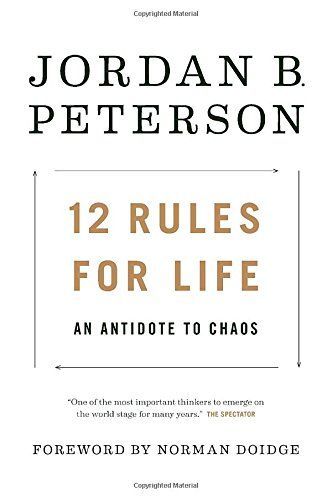
12 Rules for Life An Antidote to Chaos
"What does everyone in the modern world need to know? [The author's] answer to this most difficult of questions uniquely combines the hard-won truths of ancient tradition with the stunning revelations of cutting-edge scientific research. [The author discusses] discussing discipline, freedom, adventure and responsibility, distilling the world's wisdom into 12 practical and profound rules for life"--
Reviews
Tanishq Khandelwal@tanishq
Angeline Bien@abien
nice@yg2hj
Rasmus@rasse
Timeo Williams@timeowilliams
Apurva Chitnis@apuchitnis
Benedict Neo@benedict
Benedict Neo@bneo
Anthony@amorriscode
Fred Rivett@fredrivett
Micah@siltoile
Reinier Terblanche@rainman
Esslam Ben Ramadan@esslamben
Stewart Scott@stewart
Laura Luchian@balaura
Safiya @safiya-epub
Grace O'Callaghan@graceinneverland
J D@kdomasik
Diana Platgalve@dianaplatgalve
Simon Elliott Stegall@sim_steg
Julia Kortenhof@julie_kortenhof
Paulina R.@incryptia
Kayla Krahmer@kkreads
Gerda Šalengaitė@gerdada
Highlights
Luca Stromann@l-s
Page 248
Luca Stromann@l-s
Page 237
Geet Pithadia@gpithadia